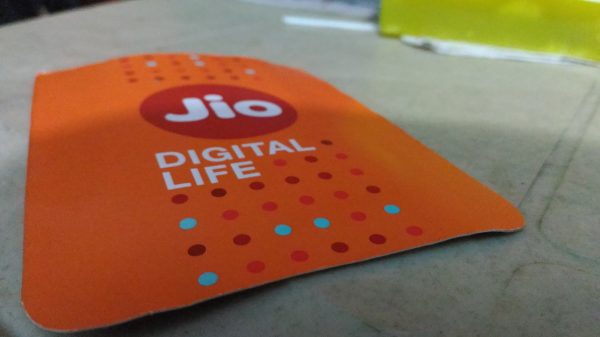What’s up? Some weeks ago, the Kerala High Court made the news following a plea by a rape accused to take down two online articles detailing his personal information under his right to privacy and the fact that he is still under trial.
The incident created quite the buzz among lawyers, privacy experts and the general public alike. This was so because the plea stoked the frequent debate of the right to be forgotten versus the right to publication. And the buzz only grew louder when the Parliament withdraw the Data Protection Bill 2021 during the monsoon session. Many experts are now eager to see how the court rules in the case without a legal framework to follow.
This is not to say that Indian courts have not previously received pleas under the right to be forgotten. In the past, many courts have ruled either in favour or against such demands. However, in most of those cases, the petitioners were acquitted. Privacy experts speaking to MediaNama regarding the right to be forgotten said that such cases stress the ever-pressing need for India to implement privacy and data protection Bill.
Why it matters: In countries with established privacy and data protection laws, it is easy for the judiciary to simply refer to Acts to resolve conflicts between the right to be forgotten under the right to privacy and the right to public or freedom of press. In the case of India, the Data Protection Bill was suddenly withdrawn in the Parliament. In the absence of such a law, the right to be forgotten vs the free press becomes a warped debate with no legal framework to refer to.
FREE READ of the day by MediaNama: Click here to sign-up for our free-read of the day newsletter delivered daily before 9 AM in your inbox.
What is the petitioner’s argument? In the plea, the accused said that articles published by the New Indian Express and the Indian Kanoon each were “prejudicial and substantially unfair” to him. He accused the former of being “misleading” while the latter shared his personal details online.
He said that even as an accused, he has a right to privacy and a fair trial rather than a public one. Stating that the court is ‘duty bound’ to protect his rights, he cited the State of Kerala Vs. Poothala Aboobacker High Court judgement that said:
“The Fourth Estate does not seem to realize the irreparable damage inflicted on the victims of crimes and the alleged culprits and those close to them through the sensationalized journalistic adventures. Truth is very often surpassed, exaggerated or distorted to add flavour and spice to the stories. Trial by media can do more harm the good to the society at large.”
He further cited the A.K.Gopalan v. Noordeen Supreme Court judgement that said “if a prejudicial publication is made regarding a person who has been arrested by the police, then the right to freedom of speech and expression under Article 19(1/a) must give way to the right of the person to a fair trial to be conducted without any prejudice.” The logic being that any prejudicial publication after arrest can influence the criminal proceedings.
“We are saying you can keep facts but delete the names, hide the identity of the accused and victim,” Advocate Geo Paul representing the petitioner told MediaNama.
The petition also talked about how the articles had impact his family. His eldest daughter, who he claimed was an ‘A-grade’ student has received low grades since the publication of the articles. He fears that the published articles will further hinder her chances in academic endeavours and “psychologically affect” both his daughters.
Similarly, the petitioner claimed his family was looked upon “as a disgraceful lot” and were excluded from social events like weddings in the extended family. As for the wife, the petition said that she was subjected to “adverse comments and taunts by her colleagues and friends.” T0 the point that she has grown scared of attending her office. The wife also lost an opportunity to move to a foreign city. The plea alleged the two articles were cited as the reason for her losing on the opportunity.
“This has inflicted unseen but deep wounds in the husband-wife relationship of the petitioner,” said the petition.
Indian Kanoon stands its ground: Although the New Indian Express appears to have taken down the contentious article, Sushant Sinha, Founder of Indian Kanoon, considered the plea a violation of the publication’s basic rights.
“People have a right to know. Such records are an important measure of someone’s past. See, It is only a violation of privacy when you take someone’s private data. But here you just want to hide your past. Let people know. Why are you trying to hide your case if you haven’t been acquitted?” he told MediaNama.
Like the Kerala plea, the Indian Kanoon faces many similar cases in other courts of India. Sinha estimated around 10 cases in Kerala High, five to six cases in Delhi Court and defamation cases in a Bathinda court among others. Exasperated of the onslaught of legal battles, Sinha referred to the European Union and called the right to be forgotten as a “bad step.”
“I don’t know why everyone wants to fight their own past and become clean on Google… Should all acquitted have their records removed from Google? Should the media be asked to remove FIRs? This has happened too! In one case, a big boss contestant wanted information about his drunken driving removed,” he said.
By this, Sinha referred to the 2021 case filed to the Delhi High Court by Ashutosh Kaushik, 2007 winner of the MTV Hero Honda Roadies 5.0 and 2008 winner of the Big Boss Season 2. In his petition, Kaushik wished to have reports of his drunk driving and ensuing arrests removed by availing “the Right to be Forgotten to safeguard [his] life, liberty, dignity, reputation from further jeopardising”. While hearing the plea, the Court issued a notice to Google LLC.
Using this example, Sinha said that such pleas are not exclusive to the Indian Kanoon alone but are a cause of concern for all news media.
“I think, this is the first line of attack on public information. Ultimately, Google will be forced to take down everything,” he said.
A sticky situation without legal framework: Despite the firm stands taken by both sides, experts in the field are not convinced of a definite answer in this case. Speaking to MediaNama, Pranesh Prakash, Co-founder of the Centre for Internet and Society and Affiliated Fellow at the Information Society Project, Yale Law School, pointed out that the accused is already facing a trial by media.
“I’ve seen some comments online saying that this person is a rapist and can’t hide behind the right to privacy, except that position in and of itself is actually prejudicial, right?” he said.
Further, he pointed out that there is no universal consensus as to what comes under the rubric of privacy. Prakash explained that the right takes different forms in different countries. Some countries consider people’s income tax details as private information while others consider it public data and make it available online.
“What is private, all of these are socially defined and rights essentially follow in the wake of social expectations,” he said.
At the same time, he pointed out that putting a limitation on freedom of press in order to get a fair trial would also be disastrous. The court will have to strike a balance between the freedom of press against direct right to fair trial and the right to privacy and reputation.
“There is no a priori right or wrong answer to this question under existing legal frameworks. Now, if you ask about a different country with a clear privacy law, I would be able to give you an answer and say that under this particular law, this isn’t allowed, that this kind of a claim should be rejected,” he said.
Similarly, Lalit Panda, Senior Resident Fellow at Vidhi Centre for Legal Policy, said that the lack of a proper law on privacy and its violation is a problem.
“What I am aware of is that these kinds of situations have come up in other jurisdictions and the mere fact that somebody has been accused of having committed a crime is not enough reason for them not to have that published. Many allegations and many acquisitions that take place in the criminal process are supposed to be adjudicated in an open court. And the idea of it being an open court, part of the reason why an open court is important and why transparent justice is important is because those were immediately involved in that legal proceedings may not be aware of all the facts,” he said.
Regarding judgements as public records, Panda said that it is important to consider whether those judgements prevent a person from rehabilitating in society, hamper their credit score, continue to punish them for whatever penalty they have already been penalised for under the legal process.
“At one point, it may become relevant that they shouldn’t continue to be punished and that if there is something that the judicial system can do to allow them to reintegrate into society, to rehabilitate, then it is important that our systems of punishment should allow for those routes,” he said.
He said that the call to keep judgements and the personal information therein as “public” depends on various aspects like the time period that has passed, the gravity of the crime, whether the person might be a repeat offender, etc.
Further, he said that privacy claims stand better in case of inaccurate reporting. In such instances, the report can be subject to a correction request. However, in the case of erasure of the report, “the question will still be about balancing free speech (which has a better case if the reporting is accurate and responsible) versus privacy and the interest of society in rehabilitating criminals,” he said.
Courts eager for clarity as well: Interestingly, this issue of lack of clarity was mentioned in a 2021 Madras High Court judgement by Justice N. Anand Venkatesh. The case was similar to the current plea except in the 2021 case, the petitioner was acquitted for their crime and demanded that the articles mentioning his involvement in the case be redacted. The judgement ultimately decided that the right to be forgotten “cannot exist in the sphere of administration of justice particularly in the context of judgments delivered by Courts.”
The court said that once something becomes a matter of public record, the right to privacy no longer subsists and it becomes a legitimate subject for comment by press and media. However, it made an exception for victims of sexual assault, kidnap, abduction or a like offence.
However, the judgement also said that it will be more appropriate to await the enactment of the Data Protection Act and Rules thereunder that may provide “an objective criterion while dealing with the plea of redaction of names of accused persons” acquitted from criminal proceedings.
“If such uniform standards are not followed across the country, the constitutional courts will be riding an unruly horse which will prove to be counterproductive to the existing system,” said Justice Venkatesh.
Still, such removal is no easy matter even in the case of victims/ survivors, In 2020, the Orissa High Court emphasised the need to recognise the right to be forgotten while hearing the bail application of a rape accused. During the hearing, the Court acknowledged the presence of objectionable images and videos of the survivor on social media. While noting the existence of the photos as a violation of privacy, the Court said that currently, there is no mechanism for a victim to be able to get their objectionable photographs deleted from social media platforms.
Privacy under the Data Protection Bill: The right to be forgotten has been included in the Data Protection Bill since 2018. In this version, the right said a person can restrict or prevent continuing disclosure of personal data. At the time it did not include ‘erasure’ that is distinct from ‘prevention of continuing disclosure.’
According to Panda, disclosure is when a person can prevent somebody from continuing disclosure but erasure would require the person not only not disclose, but also not maintain any records either. This changed in the 2019 version where the Bill brought in a separate clause for right to erasure alongside Right to Correction. While the requirements under this section were less procedurally sound in terms of ensuring that public interest is safeguarded, the appropriate place to deal with questions of preventing publication or preventing disclosure remains with the right to be forgotten.
As such, during a February event, ‘Decoding India’s Data Protection Bill,’ Vrinda Bhandari, a Supreme Court Advocate, talked about how the latter could be the most used right under the Data Protection Bill. The structure of the Bill, before being withdrawn, allowed anybody to say that a company is disclosing or processing personal data and ask that it to be removed. Many people in “privileged” positions may also try to file requests to take down information that puts them in a bad light. Moreover, she said that companies would be more incentivised to comply with a right to be forgotten request so as to avoid a hearing before the Data Protection Authority (DPA) [recently, there have been talks that the DPA may be replaced by a government-backed grievance redressal mechanism].
What would MediaNama have done? Back in 2014, MediaNama too received a right to be forgotten request from an Indian user. The person said that they planned to appeal to Google and so asked the publication to alter the story so that it either does not show up on search engines or so that the article cannot be traced back to them.
Nikhil Pahwa, Founder of MediaNama declined, pointing out that the aforementioned right did not (and still does not) exist in India and only applies to European countries. As such, an Indian publication does not have to remove the content unless an Indian court of law says so.
Further, he said, “The other, more critical, issue for us is our right as a media entity to report and record history. You’re asking us to change how history has been recorded. Done en masse, this would amount to expunging a record from history. It would be disingenuous of us to edit out something that is factually correct, and this is not a precedent we want to set. Today this request comes from someone who, perhaps, deserves that freedom from a mistake (I don’t think it was a mistake) committed so long ago, it’s mostly been forgotten. Tomorrow, it could be someone who deserves to be remembered for something, but doesn’t want to be.”
As the plea mentions, the virtual footprint on the world wide web has brought about an “un-comparable change” in both the nature and expanse of the personal information accessible online. Cases like this will continue to be filed in courts as technology progresses. However, in this fast-evolving world, India remains as one of the countries that is yet to pass a law that protects its citizens privacy and data.
This post is released under a CC-BY-SA 4.0 license. Please feel free to republish on your site, with attribution and a link. Adaptation and rewriting, though allowed, should be true to the original.
Also Read:
- You Can Now Ask Google To Remove Your Phone Number And Address From Search Results
- Data Protection Bill 2021: What Rights Will Individuals Have On Their Data?
- Google Does Not Have To Apply ‘Right To Be Forgotten’ Globally, Rules EU Court
- Two Takes On The Right To Be Forgotten
- Centre May Replace DPA With A Grievance Redressal Mechanism In New Privacy Bill






























